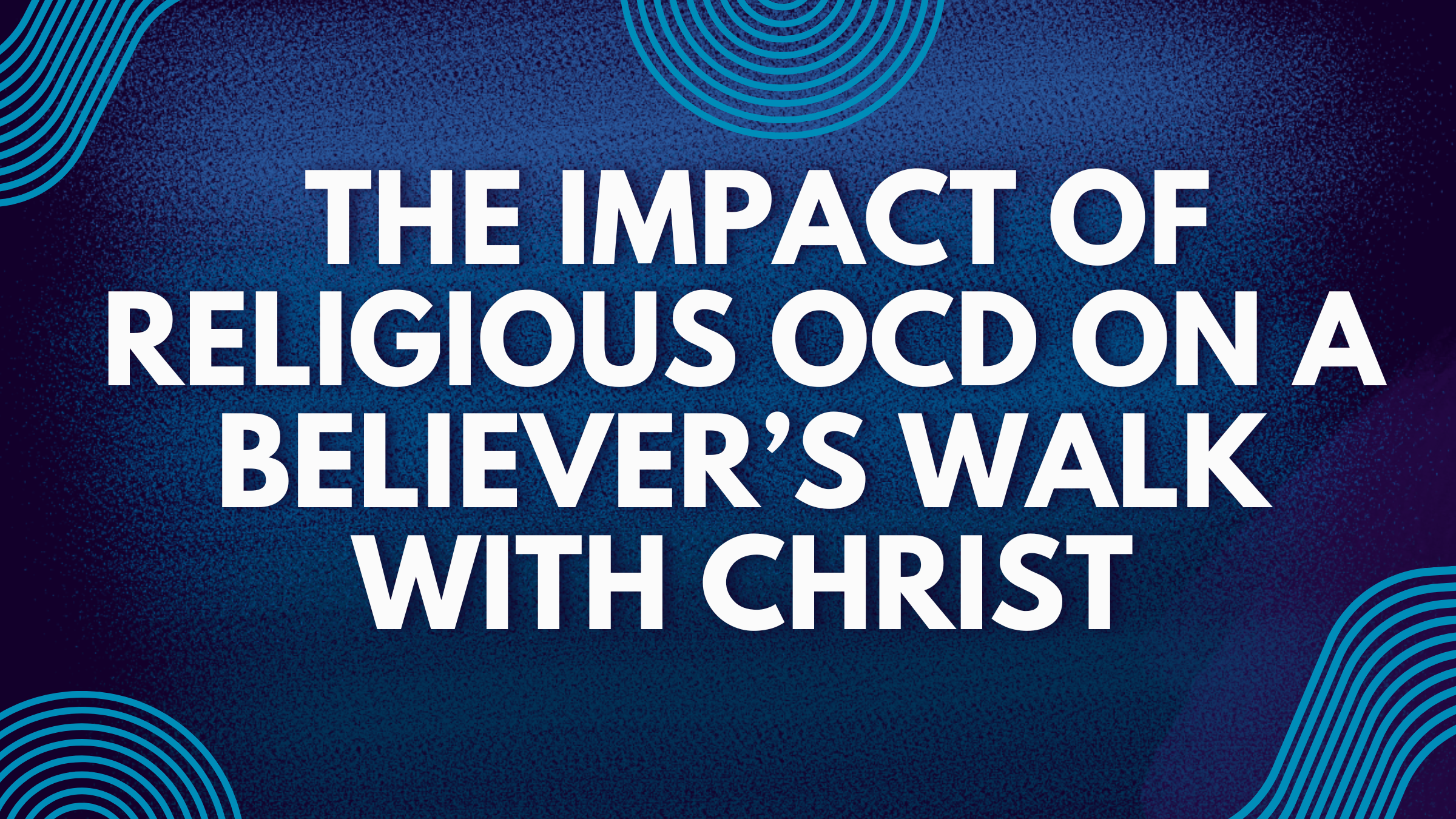
The Impact of Religious OCD on a Believer’s Walk with Christ
This blog is part of the Religious OCD Series.
Religious OCD can turn faith into a source of anxiety rather than peace, leading to avoidance, isolation, and spiritual exhaustion. Understanding these effects can help believers reclaim a grace-filled relationship with God.
For Christians, faith is meant to be a source of comfort and strength. However, for those struggling with Religious OCD, faith can become a battleground of fear, doubt, and relentless self-examination. Instead of experiencing the joy of God’s presence, believers with Religious OCD may find themselves trapped in cycles of compulsive rituals, seeking reassurance, and fearing that they are failing in their faith. Over time, these struggles can lead to avoidance, isolation, and deep spiritual exhaustion.
Recognizing how Religious OCD affects a believer’s walk with Christ is an important step in learning to separate faith from fear and embracing the freedom found in God’s grace.
Avoidance: Fleeing from Triggers Instead of Facing Them
One of the major impacts of Religious OCD is avoidance—avoiding certain Bible passages, church services, conversations about theology, or even prayer itself out of fear that these will trigger intrusive thoughts and anxiety.
Common forms of avoidance include:
- Avoiding Scripture – Some believers may steer clear of certain Bible passages (such as those about blasphemy, judgment, or salvation) because reading them causes distress.
- Skipping Church or Worship Services – Fear of encountering triggering messages or being overwhelmed by doubts may lead some to withdraw from their church community.
- Avoiding Prayer – For some, prayer becomes so wrapped up in compulsive rituals that they stop praying altogether to avoid the stress of “doing it wrong.”
- Distancing from Christian Fellowship – Some believers may withdraw from conversations about faith, fearing that discussing theological topics will spiral into intrusive doubts or anxieties.
Avoidance can cause a believer to feel disconnected from God and their Christian community, reinforcing the idea that they are somehow failing in their faith or even losing it.
Isolation: The Silent Suffering of Scrupulosity
Religious OCD often creates a deep sense of isolation. Those struggling may feel that no one else understands their distress or that admitting their fears would make them seem spiritually weak or unfaithful.
Ways that isolation manifests include:
- Keeping Doubts and Fears Private – Many fear that sharing their intrusive thoughts or struggles will lead to judgment or misunderstanding. They may also feel embarrassed to admit the nature of their thoughts, worrying that others will not understand or may react negatively.
- Feeling Spiritually Alone – Despite being surrounded by fellow believers, someone with Religious OCD may feel utterly alone in their battle.
- Believing Their Faith Is Inadequate – The persistent anxiety and compulsions can make individuals feel like they are failing where others are thriving.
This isolation can intensify symptoms, making it even harder to break free from the OCD cycle.
Spiritual Exhaustion: When Faith Feels Like a Heavy Burden
The constant cycle of intrusive thoughts, compulsions, and reassurance-seeking can leave a believer feeling spiritually drained. Instead of experiencing peace in Christ, they may feel overwhelmed by the pressure to “get it right” in their faith.
Signs of spiritual exhaustion include:
- Feeling Overwhelmed by Religious Duties – Reading the Bible, praying, or attending church may feel like impossible tasks due to the fear and anxiety they provoke.
- Doubting One’s Relationship with God – Constantly questioning salvation or worrying about sin can leave a believer feeling distant from God.
- Loss of Joy in Worship – Worship and devotion, instead of being acts of love and connection with God, can become fear-driven obligations.
This exhaustion can lead to deep discouragement, making it difficult to engage in faith practices.
What Does the Bible Say About This Struggle?
Jesus Himself addressed the burden of legalism and fear-based faith, offering an invitation to rest in Him:
- Matthew 11:28-30 – “Come to me, all who labor and are heavy laden, and I will give you rest. Take my yoke upon you, and learn from me, for I am gentle and lowly in heart, and you will find rest for your souls. For my yoke is easy, and my burden is light.” This passage reassures believers that faith is meant to be freeing, not an exhausting struggle. However, for those with Religious OCD, experiencing this ‘light burden’ can feel out of reach. It’s important to remember that struggling with fear and anxiety does not mean one is failing in their faith—God’s grace is sufficient even when peace feels distant. Christ is still with you even when peace feels distant.
- Romans 8:1 – “There is therefore now no condemnation for those who are in Christ Jesus.” A reminder that salvation is secured in Christ, not in perfect thoughts or rituals.
Reclaiming a Grace-Filled Walk with Christ
If you recognize these struggles in your own faith journey, know that there is hope. Here are some steps to begin breaking free:
- Recognize That Feelings Do Not Define Faith – Salvation is not based on how you feel but on God’s promises.
- Re-engage with Scripture and Prayer Slowly – Instead of avoiding these practices out of fear, take small steps to reconnect with God.
- Lean on Trusted Christian Community – Surround yourself with believers who understand and can encourage you with truth and grace.
- Seek Professional Help – Christian psychologists, therapists, and psychiatrists can provide evidence based treatments for OCD that can make a world of difference.
What’s Next?
In the next article, we will explore the role of medication and biological treatments in managing Religious OCD.
More on that next week…
For Kentucky Residents
If you live in Kentucky and are seeking support for religious OCD or scrupulosity, our team at Next Step 4 Mental Health in Louisville is here to help. We offer compassionate, evidence-based care—both in-person and through telehealth—for children, teens, and adults.


For Those Outside Kentucky
If you’re not a Kentucky resident, we encourage you to seek care from a licensed mental health provider in your area. Professional support can be a vital step toward healing and peace.
Note: This article is for educational purposes only and is not intended as medical advice. Please consult a licensed mental health provider for appropriate care.
Related Posts
OCD During the Pandemic: What You Need to Know
Mental health experts from the Centers for Disease Control and Prevention are...
What is Bipolar Disorder?
One of the most dangerous aspects is that multiple untreated manic or hypomanic...



